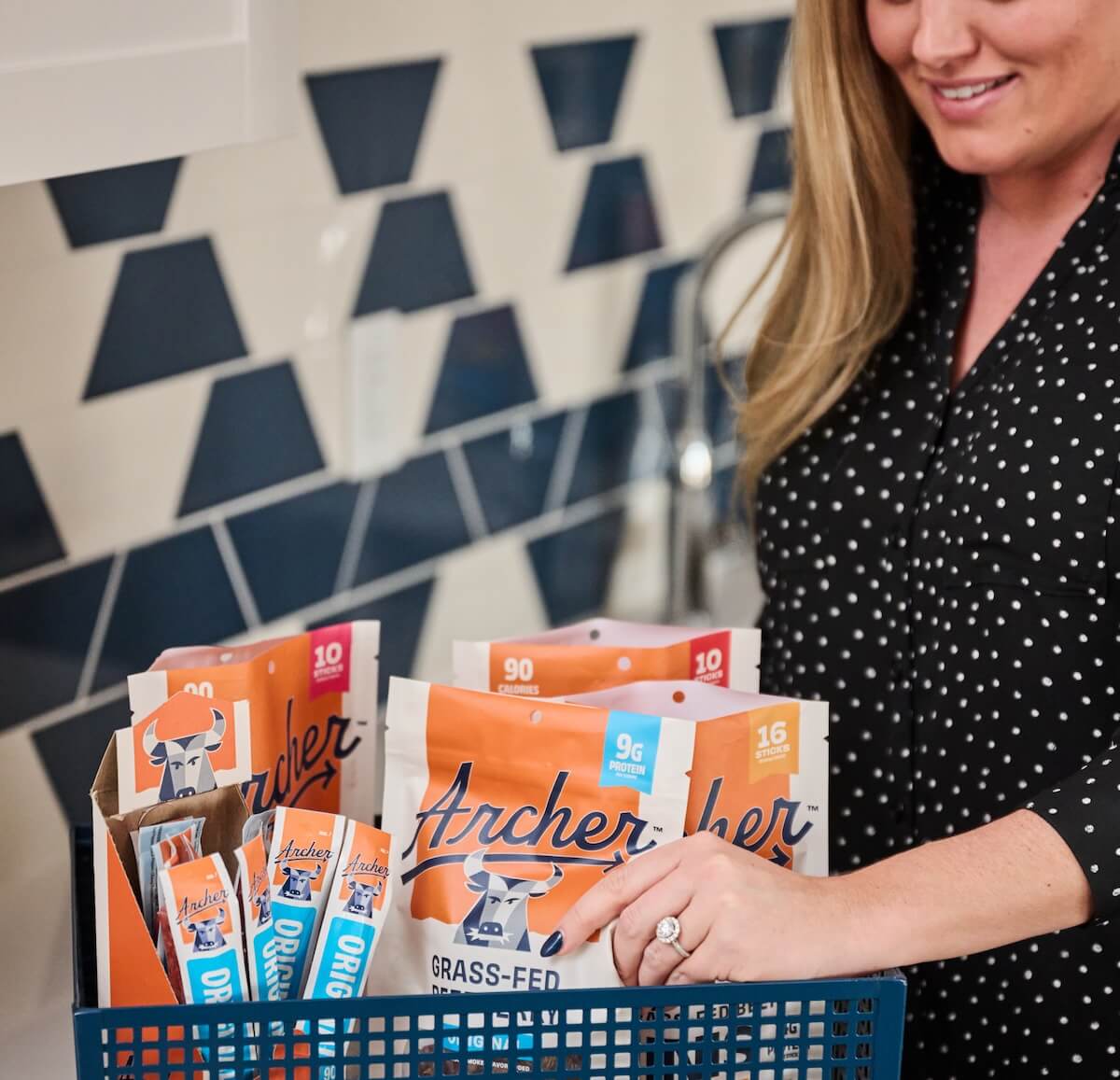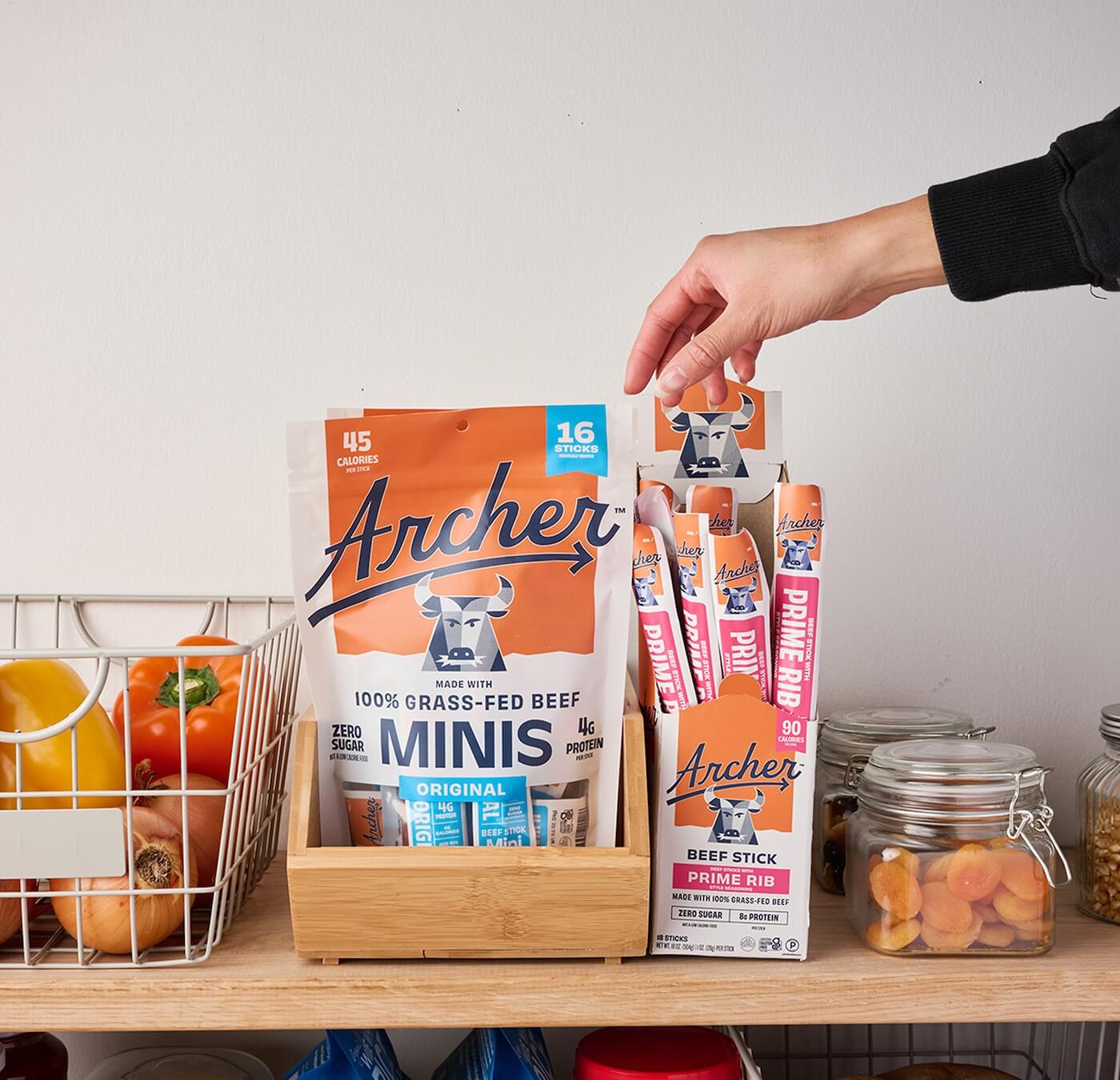Our Ingredients


Deserves Real
At Archer, we start with real, high-quality proteins. Like 100% grass-fed beef and all-natural turkey and pork. Not protein from a powder or animals pumped full of junk. We then season these satisfying cuts of meat with herbs, spices and hand-crafted marinades. No fillers, junk or other things you can't pronounce. Just honest, wholesome food you can feel good about.
-

Snacks Should
Be Real.They shouldn’t be full of stuff you can’t understand or pronounce.
-

Protein Should
Be Real.It shouldn’t come in a powder or from animals pumped full of junk.
-

Life Should
Be Real.It shouldn’t be defined, dictated or dreamed-up by others.


Responsible Ingredients.
Forget bland, factory-farmed beef and turkey. Grass-fed and all-natural turkey is where flavor meets function. These pasture-raised cattle live their best lives munching grass under open skies while our all-natural turkey comes without the alphabet soup of additives and artificial growth hormones. Better for them, better for the planet, and better for your snacks.